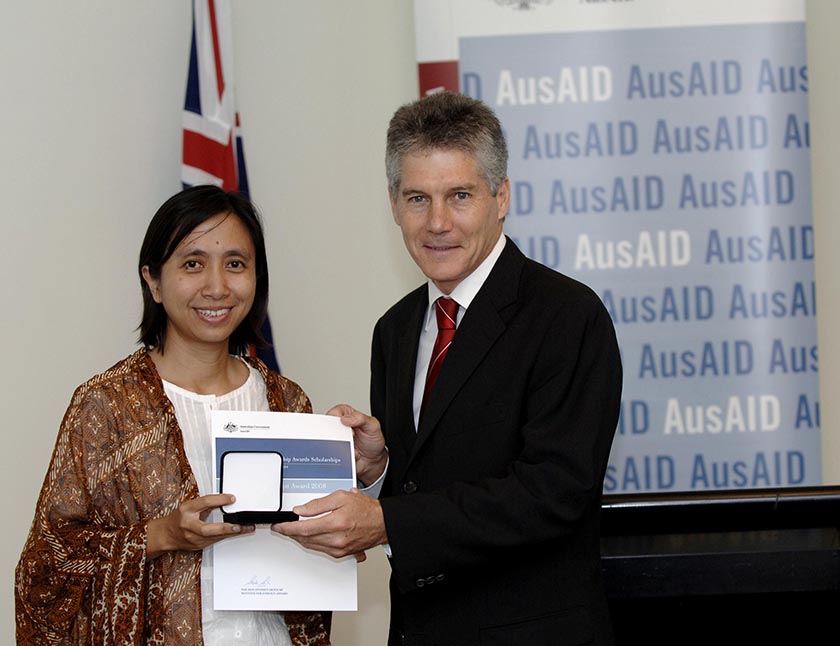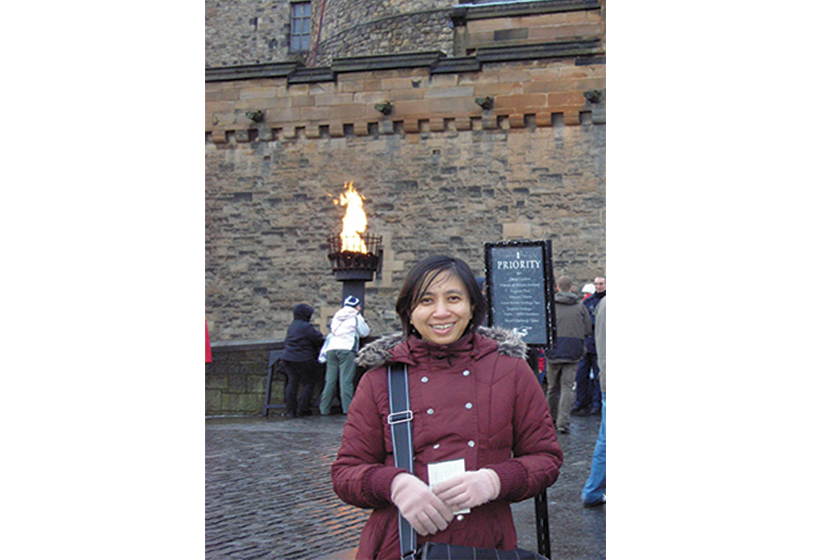Allison Sudradjat Prize Winner 2008
Jeanne Rini Peospoprodjo has spent more than 15 years of her medical career focused on malaria in Papua province, treating patients, advising the government as well as conducting valuable research on the disease.
“I want to be part of the solution to the problem of malaria in Indonesia, especially in Papua,” Rini said.
Rini obtained her PhD from Charles Darwin University’s Menzies School of Health Research in Australia in 2011 on the Australian Leadership Award scholarship.
She had completed her medical degree at Padjadjaran University in 1990 and her pediatric specialty degree at Gadjah Mada University nine years later.
In 2008 she received the Allison Sudradjat Award in support of emerging leaders in Indonesia.
Rini said her study in Australia had allowed her to complete her research on the adverse impact of malaria on mothers and children.
“Menzies provided me with a conducive environment to allow me to finish my research, which paved the way for me to establish myself as one of experts on malaria and to provide advocacy to the government,” she said.
“In Australia I met many experts on tropical diseases and developed contacts with experts from other universities in the United States, Britain and other European countries.”
Rini started out as a general practitioner working in a remote community health centre in Merauke in Papua in 1991.
“At that time I began to understand health problems affecting Papuans, and one of them was malaria and its serious threat to the health of mothers and children,” she said.
“At that time there were very few evidence-based programs. Often programs were adopted from other places or even foreign countries.”
When experts from Menzies School of Health Research visited Papua, they offered to work together on malaria research.
In Papua, the Annual Parasite Incidence (confirmed cases of malaria during one year) stood at 42 per 1,000 people in 2013, according to the Health Ministry’s Basic Health Survey.
“There has been progress but malaria cases in Papua remain higher than in other areas in Indonesia,” Rini said.
Malaria infection during pregnancy poses serious health risks to the mother and the foetus.
It can result in a birth weight of less than 2,500 grams, a condition associated with high risk of mortality during the first year of life, Rini said.
Rini has received various awards for her work on malaria.
In 2010, she received an award from Indonesia’s Vice President for her outstanding contributions to malaria research.
Last year, Rini received an award from the Australia Indonesia Association for humanitarian work.
Her research work has been published in scientific journals such as PLoS ONE and Journal of Infectious Diseases.
In addition to advising the government on mother and child health, Rini also serves as a senior researcher at the Timika Health Facility and the governing board of the Papuan Community Health and Development Foundation.
Over the years, she has also served as a consultant and advisor in programs under Unicef and the World Health Organization.
Rini, who also holds a master’s degree in mother and child health from the University College London, said she hoped to continue her work in Papua in the coming years.
“My goal is to be able to improve government policies on dealing with malaria and promote a good relationship between Indonesian and foreign researchers,” she said.



 Jeanne Rini Poespoprodjo: Dedicated to Fighting Malaria
Jeanne Rini Poespoprodjo: Dedicated to Fighting Malaria
